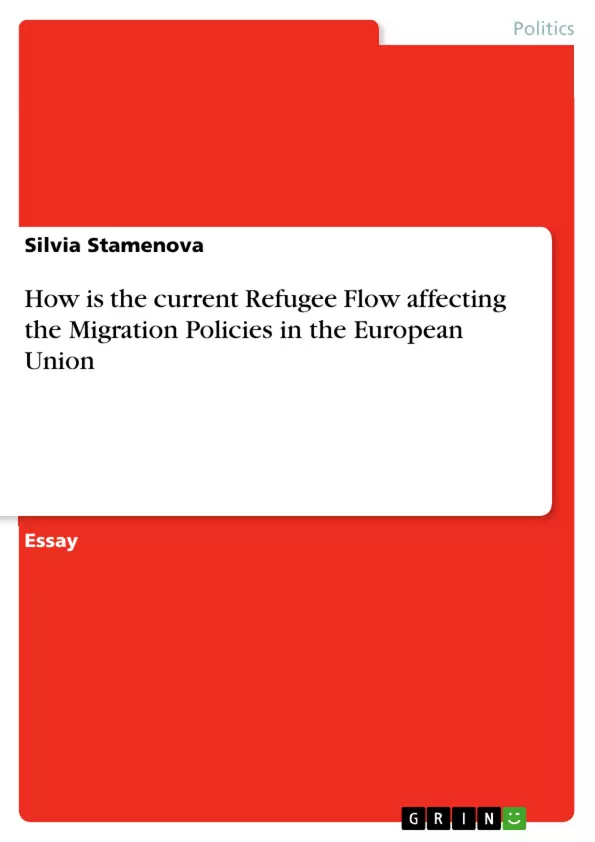The question posed in this paper is the following - how the current refugee flow affects the migration policies in the European Union. However, what is important to be mentioned here is the fact that within the EU there is considerable freedom of travel, in most cases--without border checks. Moreover, for the security of the external borders, the individual countries receive support from the European Agency Frontex, as well as from a number of electronic databases relating to visa facilitation, input/output control and applicants for asylum.
In special cases, however, individual European countries have the right and are obliged to take special measures for the protection of external borders – for example through the construction of fences or other facilities. These have already been raised, for example in Bulgaria, Greece, Spain, and in recent days Hungary and began to build a "wall", as well.
Member States have the right to close its borders to the other European States only in extreme situations and temporary. The decision for such a measure, however, is taken at European level. At present, the Union needs to clarify the migration policies that it is going to follow in regard to the current migration flows.
Inhaltsverzeichnis (Table of Contents)
- Abstract
- Introduction
- Literature review
- Research question
- Conclusions
- Bibliography
Zielsetzung und Themenschwerpunkte (Objectives and Key Themes)
This paper explores the complex interplay between the current refugee flow and the migration policies of the European Union. It examines the challenges posed by the influx of refugees on the EU's ability to manage borders, maintain stability, and uphold the principles of regional integration.
- The impact of the current refugee flow on EU migration policies
- The effectiveness of existing EU migration policies in addressing the challenges of the refugee crisis
- The tension between national sovereignty and regional integration in the context of migration
- The role of the European Agency for the Management of Operational Cooperation at External Borders (Frontex) in managing the refugee crisis
- The challenges of integrating refugees into European societies.
Zusammenfassung der Kapitel (Chapter Summaries)
1 Introduction
This chapter explores the background of the current refugee crisis, focusing on the Dublin rules and the challenges they present in a context of overwhelming refugee numbers. It raises questions about the purpose of migration policy, the factors influencing its development, and the consequences of its success or failure. The chapter also discusses the complex relationship between national sovereignty and regional institutions like the EU in the context of migration control.
2 Since long we talk about the 'walls' in Europe
This chapter examines the metaphor of "Fortress Europe" and the debate surrounding the construction of physical and symbolic barriers to immigration. It analyzes the impact of regional integration on immigration flows and the challenges it poses for national control of borders. The chapter also discusses the history of migration control and its inherent limitations, highlighting the persistent view of migrants as a nameless threat.
Literature review
This chapter delves into the historical development of EU migration policies, tracing the evolution of attitudes towards immigration from a restrictive approach to a more pragmatic one. It examines the role of economic factors and globalization in shaping EU migration policies and the increasing importance of managing immigration flows. The chapter also analyzes the role of Frontex in managing the refugee crisis and the challenges it faces in effectively controlling illegal immigration.
Schlüsselwörter (Keywords)
The main keywords and focus topics of this text include: migration, refugee flow, EU migration policies, regional integration, national sovereignty, border control, Frontex, illegal immigration, integration, and the challenges of managing a refugee crisis.
- Quote paper
- Silvia Stamenova (Author), 2016, How is the current Refugee Flow affecting the Migration Policies in the European Union, Munich, GRIN Verlag, https://www.grin.com/document/426569



